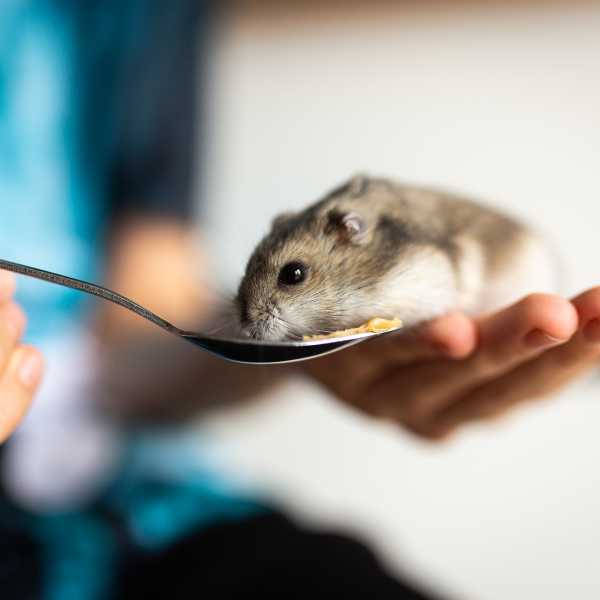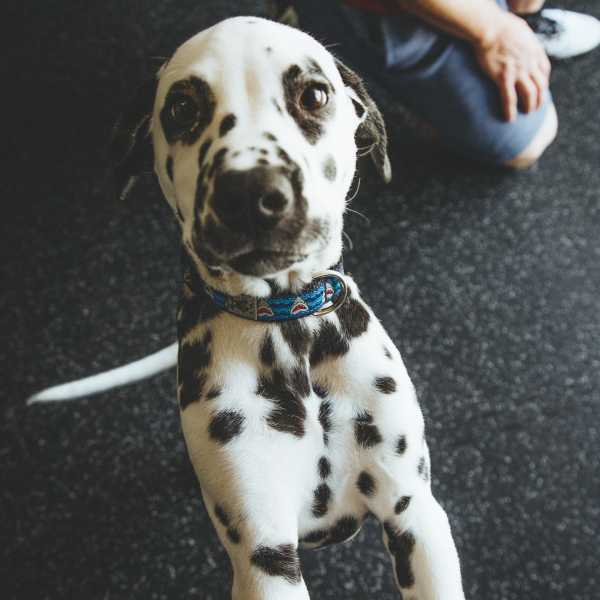
Can Dogs Eat Cheese? Understanding the Risk
Posted on 8 February, 2024

Photo by Cody Pulliam on Unsplash
Can dogs eat cheese? Since cheese is a tasty and healthy food that people like, this is a question that a lot of dog owners have. Cheese, however, is not always a safe and healthy treat for dogs. Depending on the type, quantity, and frequency of cheese given to dogs, it might result in issues like pancreatitis, obesity, or lactose intolerance.
We'll look at the benefits and risks of cheese for dogs in this blog post, along with the best cheese options and alternatives. You will know more about whether or not cheese is a good reward for your dog by the end of this post.
Why Do Dogs Love Cheese?
For lots of reasons, dogs love cheese. Dogs can get protein, fat, vitamins, and minerals from cheese, which is also a tasty and healthy diet. Dogs are drawn to cheese because of its rich smell and creamy texture. Furthermore dogs that consume cheese may develop a minor addiction to certain proteins which causes them to want more.
However, since cheese is high in fat, salt, and lactose which might harm some dog's health it should only be given to dogs in moderation says an expert of CanDogsEatAI.
What Are the Benefits of Cheese for Dogs?
When served in moderation cheese can provide some benefits for dogs. Along with essential protein for their growth and muscular development it's an excellent supply of calcium. In addition, cheese has important fatty acids and vitamins that help improve a dog's overall diet.
Some of the benefits of cheese for dogs are:
Calcium: Cheese has a lot of calcium which is good for dog's circulation, teeth, and bones.
Protein: Dogs need high-quality protein to grow and repair their muscles, tissues, and organs. Cheese offers this protein.
Vitamin A: Present in cheese vitamin A is essential for a dog's skin, immune system, and eyesight.
Vitamin B: Dog's red blood cell production, energy metabolism, and neurological function are all impacted by the B vitamins found in cheese, including riboflavin, niacin, and B12.
Essential fatty acids: Dog's brain growth, inflammation reduction, and skin and coat health all benefited from the omega-3 and omega-6 fatty acids found in cheese.
Risks of Cheese for Dogs
Cheese should not be given to dogs in excess, as it can also pose some risks, such as:
Obesity
Cheese has a high fat and calorie content which can cause weight gain and obesity in dogs when served in excess or too frequently. Dogs that are obese may be more prone to heart disease, diabetes, rheumatoid arthritis, and other conditions.
Pancreatitis
Cheese can cause pancreatitis in dogs that are prone to high-fat diets. Pancreatitis is a dangerous and sometimes fatal disorder that causes inflammation of the pancreas. Dogs suffering from pancreatitis may have severe gastrointestinal discomfort, vomiting, diarrhoea, and dehydration.
Toxic ingredients
Cheese may contain chemicals such as xylitol, garlic, onion, chives, or other herbs and spices that are toxic to dogs. Dogs who consume these ingredients may get hypoglycaemia, anaemia, or liver damage.
Lactose intolerance
A type of sugar present in milk lactose is an element of cheese that some dogs are intolerant to. Canine gastrointestinal problems like gas, bloating, diarrhoea, or vomiting can be caused by lactose intolerance.
How To Identify and Manage Lactose Intolerance in Dogs?
Dogs that suffer from lactose intolerance are unable to digest lactose which is a form of sugar included in milk and dairy products. In dogs that ingest dairy products, it might result in gastrointestinal symptoms such as diarrhoea, vomiting, gas, and bloating.
Dairy allergies, which are more serious and involve an immune system response to dairy proteins are not the same as lactose intolerance.
Here’s how you can identify lactose intolerance in dogs:
Diarrhoea: A common sign that a dog is lactose intolerant is diarrhoea. It usually appears 12 hours after consuming dairy products and can be loose or runny.
Vomiting: Vomiting is another reaction to dairy products that may indicate lactose intolerance-related nausea and discomfort.
Lack of appetite: Lactose intolerance may cause nausea or discomfort in the abdomen. Eating may be avoided by your dog, or eating may be reduced.
Dehydration: This may be caused by vomiting and diarrhoea and can make your dog lethargic, weak, and have dry lips.
Weight loss: This might happen if your dog isn't getting enough nutrition and calories and has frequent diarrhoea and vomiting due to lactose intolerance.
Here’s how you can manage lactose intolerance in dogs:
Don't give your dog any dairy items that have lactose in them. To find hidden dairy sources in commercial dog foods and treats, carefully read ingredient labels.
The use of lactose-free alternatives, such as dog treats made without dairy and lactose-free milk, should be considered.
To choose the right dog food options that satisfy your dog's nutritional requirements, consult with a vet.
After dairy feeding, keep an eye on your dog's behaviour and symptoms. Stop feeding dairy products and, if necessary, seek veterinarian care if you observe any signs of lactose intolerance.
To keep your dog from becoming dehydrated from vomiting and diarrhoea, give them lots of water and electrolytes.
How Much Cheese Can You Give Your Dog?
The amount of cheese you can give your dog depends on several factors, such as:
Cheese type
Certain cheeses are better and safer for dogs than others. High-fat and high-sodium cheeses like cheddar, parmesan, or blue cheese are not as healthy as low-fat and low-sodium cheeses like mozzarella, cottage cheese, or soft goat cheese.
Dog's weight and size
Larger, more energetic dogs can eat more cheese than smaller, less energetic dogs. Cheese should normally make up no more than 10% of your dog's daily calorie consumption.
A 10-pound dog, for instance, can eat roughly 1 ounce of cheese, whereas a 50-pound dog can eat roughly 5 ounces.
Frequency of cheese feeding
Dogs should only occasionally be given cheese, it shouldn't be an everyday part of their diet. Dogs who are fed cheese excessively or frequently have a higher risk of developing pancreatitis and obesity.
Dog's tolerance
Certain dogs are more sensitive to lactose than others, and they may have gastrointestinal issues after consuming cheese, such as vomiting, diarrhoea, gas, or bloating. You should either use lactose-free alternatives or prevent giving your dog cheese if they show any indications of lactose intolerance.
Alternatives of Cheese for Dogs
Here are some possible alternatives for cheese for dogs:
Peanut butter
For dogs, peanut butter is an excellent source of protein, good fats, and vitamins. In addition, it can maintain the condition of their gums and teeth. Still, be cautious to select pure peanut butter free of xylitol, a canine-toxic sugar alternative.
Carrots
Filled full of fibre and low in calories, carrots might help your dog feel satisfied and avoid eating too much. They also include beta-carotene, which is beneficial to the immune system and eyesight of your dog. You can eat carrots raw or cooked but don't season or add salt.
Eggs
For dogs, eggs are a great source of protein, calcium, iron, and other nutrients. They can also help your dog's coat and skin stay healthier. You can boil, scramble, or poach eggs, but don't feed raw eggs because they can carry bacteria like salmonella.
Apple slices
On hot days, in particular, dogs love these crunchy and refreshing treats. The high levels of fibre, vitamin C, and antioxidants help strengthen your dog's defences against illness and keep him from becoming constipated.
Slicing an apple will also help your dog breathe fresher and their teeth cleaner. Don't give the seeds or core, though, as they contain cyanide, which is toxic to dogs.
Conclusion
In conclusion, cheese has the potential to be a satisfying and popular food for dogs, but it also has serious risks and negative effects. Dogs may develop lactose intolerance, pancreatitis, obesity, or other issues depending on the kind, quantity, and frequency of cheese they eat. Dogs should therefore only be fed cheese in moderation and with caution.
Good options for dog cheese include low-fat and low-sodium kinds. Other tasty and healthy dog treats that you may choose from include peanut butter, carrots, eggs, yoghurt, and apple slices.
You can make sure your dog eats cheese responsibly and safely by paying attention to these tips.
Tags:



